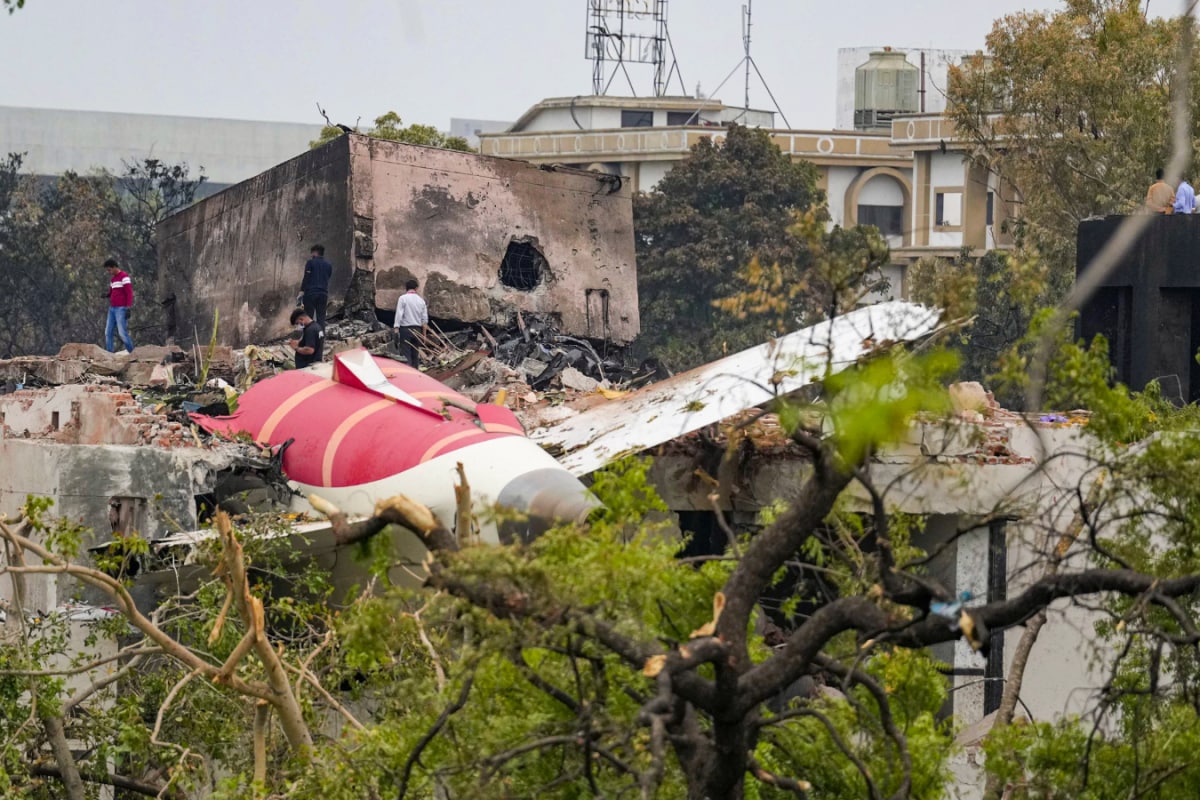

The recent crash of Air India Flight AI171 in Ahmedabad has reportedly triggered significant morale issues among the airline's employees. The tragic incident, which claimed the lives of 270 people, including passengers and crew, has sent shockwaves through the organization, impacting employee well-being and raising concerns about the future.
The crash, involving a London-bound Boeing 787-8 Dreamliner, occurred shortly after takeoff from Sardar Vallabhbhai Patel International Airport on June 12, 2025. The aircraft crashed into a residential area near BJ Medical College, resulting in widespread devastation and a high number of fatalities. The incident is considered the deadliest single-plane accident in India.
In the aftermath of the crash, Air India has been grappling with multiple challenges. The airline has been forced to ground several aircraft for deeper checks, leading to flight cancellations and disruptions across domestic and international routes. According to the Directorate General of Civil Aviation (DGCA), Air India has cancelled operations for 83 wide-body flights, including 66 Dreamliners, since the crash.
Adding to the strain, the DGCA has directed Air India to terminate three employees following recent safety lapses. The aviation watchdog also issued a warning to the airline for breaching safety rules after three of its Airbus planes flew despite being overdue checks on emergency equipment.
These events have further heightened anxiety and uncertainty among Air India employees. Reports suggest that employees are struggling to cope with the emotional impact of the crash, coupled with concerns about job security and the airline's future.
To address the crisis, Air India has taken several measures. Tata Sons chairman N. Chandrasekaran announced compensation of 10 million rupees (S$148,900) to the families of each person who lost their life. He also promised to cover the medical expenses of those injured and help reconstruct the B.J. Medical hostel the plane fell on.
The airline has also initiated investigations into the cause of the crash, with the DGCA also conducting its own inquiry. Preliminary reports indicate that the aircraft issued a mayday call shortly after takeoff before communication was lost. A black box has been recovered from the wreckage to aid in the investigation.
In an attempt to control the narrative and prevent misinformation, Air India has reportedly issued an internal gag order, barring employees from speaking to the media. While the intention may be to manage public perception, such measures can further exacerbate employee anxiety and distrust.
Industry experts emphasize the importance of rebuilding employee morale and consumer confidence in the wake of the tragedy. Air India, which was taken over by the Tata Group in 2022 after decades of government control, had been undergoing a transformation plan to revamp its fleet, upskill staff, and improve its overall performance. However, the crash has undoubtedly set back these plans, requiring the airline to prioritize safety, support its employees, and restore its reputation.
Moving forward, Air India faces the challenge of addressing the underlying issues that may have contributed to the crash, while also fostering a supportive and transparent work environment. Open communication, employee assistance programs, and a renewed focus on safety protocols will be crucial in rebuilding trust and restoring morale among the airline's workforce.